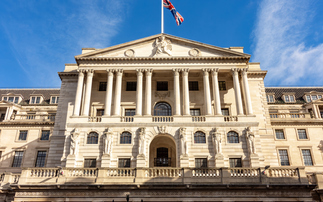After Friday's market turmoil, David Jane says the key issues to watch in the short term are uncertainty around the future of the Conservative party leadership and how and when first exit steps are taken
Initial asset class reaction to the result of the EU referendum has been fairly conventional - safe havens, such as gold, Japanese yen, US dollar assets and core government bonds, have benefited while sterling and risk assets, such as banks and UK domestic equity, have suffered. Volatility has increased sharply across assets, with correlations rising within risk-on and risk-off assets.
Markets dislike uncertainty and are trying to digest events. The key issue to watch in the short term is uncertainty around the future of the Conservative party leadership and how and when first exit steps are taken. In the meantime, central banks will be looking to manage financial market distress.
Markets will also be looking to the weekend's election in Spain as a further gauge to how widespread euro-scepticism is across the region. The popularity of Italy's Eurosceptic ‘5 star' movement in recent mayoral elections is also an interesting indicator.
The UK result poses increased systemic risk to the financial system. Further out, it will only add to an increased deterioration in the economic environment. Policymakers will look to manage both of these risks - needless to say ‘moral hazard' will not be front of mind but ‘doing anything necessary' and co-ordinated action will be.
A key part of their response will be the degree to which a feedback loop develops between markets and the broader financial system and, in time, the broader economy. Looking through the noise, this result adds to our ‘lower for longer' base case and our political risk theme. We expect elevated volatility but, as yet, it is unclear how temporary this risk-off episode will be. The risk of global recession, however, has increased.
Our approach throughout this period, which is consistent with our philosophy, has been to prioritise capital preservation, with little exposure to either potential outcome. In addition, we have had a defensive stance for some time and our ‘lower for longer' base case is intact.
We have had material exposure to gold, core government bonds, high-quality investment grade corporate bonds and defensive equity. These positions are helping protect capital today. We have no exposure to bank equity which has been hard hit. On the flipside, UK equity (especially domestic focused) and UK property is detracting from performance.
Market dislocation is throwing up some opportunities and we are taking advantage selectively, especially in those areas that tick boxes in our ‘lower for longer' view, or secular growth themes.
David Jane is manager of Miton's multi-asset range
Key points:
* In the short term, uncertainty around the future of the Conservative party leadership and first exit steps are key for markets
* The Brexit result poses increased systemic risk to the financial system and increases the risk of global recession
* Exposure to gold, core government bonds, investment grade corporate bonds and defensive equity contribute to protecting capital
* Market dislocation is throwing up selected opportunities and our ‘lower for longer' base case is intact










